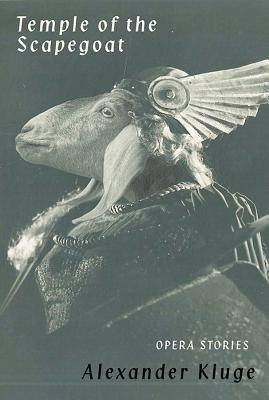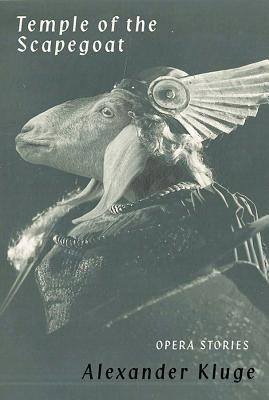
- Afhalen na 1 uur in een winkel met voorraad
- Gratis thuislevering in België vanaf € 30
- Ruim aanbod met 7 miljoen producten
- Afhalen na 1 uur in een winkel met voorraad
- Gratis thuislevering in België vanaf € 30
- Ruim aanbod met 7 miljoen producten
Zoeken
Omschrijving
Combining fact and fiction, each of the one hundred and two tales of Alexander Kluge's Temple of the Scapegoat (dotted with photos of famous operas and their stars) compresses a lifetime of feeling and thought: Kluge is deeply engaged with the opera and an inventive wellspring of narrative notions. The titles of his stories suggest his many turns of mind: "Total Commitment," "Freedom," "Reality Outrivals Theater," "The Correct Slowing-Down at the Transitional Point Between Terror and an Inkling of Freedom," "A Crucial Character (Among Persons None of Whom Are Who They Think They Are)," and "Deadly Vocal Power vs. Generosity in Opera." An opera, Kluge says, is a blast furnace of the soul, telling of the great singer Leonard Warren who died onstage, having literally sung his heart out. Kluge introduces a Tibetan scholar who realizes that opera "is about comprehension and passion. The two never go together. Passion overwhelms comprehension. Comprehension kills passion. This appears to be the essence of all operas, says Huang Tse-we." He also comes to understand that female roles face the harshest fates: "Compared to the mass of soprano victims (out of 86,000 operas, 64,000 end with the death of the soprano), the sacrifice of tenors is small (out of 86,000 operas 1,143 tenors are a write-off)."
Specificaties
Betrokkenen
- Auteur(s):
- Vertaler(s):
- Uitgeverij:
Inhoud
- Aantal bladzijden:
- 288
- Taal:
- Engels
Eigenschappen
- Productcode (EAN):
- 9780811227483
- Verschijningsdatum:
- 23/01/2018
- Uitvoering:
- Paperback
- Formaat:
- Trade paperback (VS)
- Afmetingen:
- 130 mm x 201 mm
- Gewicht:
- 113 g

Alleen bij Standaard Boekhandel
+ 48 punten op je klantenkaart van Standaard Boekhandel
Beoordelingen
We publiceren alleen reviews die voldoen aan de voorwaarden voor reviews. Bekijk onze voorwaarden voor reviews.











